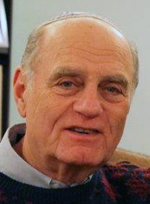
TARRYTOWN, New York — Looking back at the history of international relationships, it is easy to see the main factors which make countries hostile towards one another.
* Ideological differences between the countries;
* Territorial claims of one country against another
* A country’s desire to seize another country’s natural resources.
* A country’s religious zeal against another country.
There are a number of other less important factors but let us talk about major ones.
Before the disintegration (which was, amazingly, disintegration) of the Soviet Union, the first factor was constantly in effect. The Soviets, following their ideology, desired to make the United States, and the world as a whole, “happy” by introducing their “advanced system” of communism to all these “ideologically backward” countries. Strangely enough, the United States and other democratic countries did not appreciate these efforts. Obviously, this caused an adversarial relationship.
Russia is not the Soviet Union nor a communist country any longer. Yes, its democracy has a long way to develop in comparison to the US, but again it is no longer the Soviet Union nor is it a continuation of the Soviet Union.
It is also easy to see that the second, third, and fourth factors are not applicable to the relationship between the US and Russia.
Not to be misunderstood, I should say here that I came to our great country as a Jewish refugee from the Soviet Union, and looking back on my “pleasant” experience in the former Soviet Union, I have no warm feelings towards Russia.
Nevertheless, I don’t think that the statement, which one can hear almost every day, that Russia is our adversary is correct.
I know that our great country is not an enemy of Russia. And I also know that it is counterproductive and dangerous if the US and Russia will act as adversaries.
Let us look back a few years. When the Soviet Union disintegrated, the mature, adult-like and diplomatically-wise reaction of our media and politicians should have been to congratulate them and to offer our friendship to Russia.
But some “boys and girls” in our media and government could not resist the temptation to say: “We are now the superpower, and you Russia are not a superpower any longer.”
Was this a wise policy to adopt towards Russia?
The Russians are very nationalistic. The reaction of a mature people would have been to respond: “Superpower or not, we are going to build a new, democratic Russia.”
But the response of the “boys and girls” from the Russian government and Russian media was: “Not a superpower? We will show you that we are a superpower!”
With such an attitude on both sides, even now, 28 years from the time of the Soviet Union’s disintegration, the relationship with Russia is not good. This is unfortunate for both of our countries, and for the world.
Russia is not the Soviet Union. Yes, Putin is half an elected president and half a dictator. And yet, Putin is not an evil man (compare him to some other dictators, some of whom are even our allies). From my Jewish perspective, Putin is the first Russian ruler — before, during and after the Soviet Union — who is not an anti-Semite.
Yes, Putin acts in Russia’s best interests, the way he sees them, and he also acts to prove to the world that Russia is a great power. But what is to be expected?
Naturally each country has its own interests which might conflict with the interests of other countries.
President Trump had, and hopefully still has, on his agenda to establish a good relationship with Russia and with Putin personally. Every reasonable person should wish for this to happen.
The US and our European allies should feel comfortable that Russia is not a threat to them and the Russians should feel comfortable that the US and NATO are not a threat to Russia. The alternative can lead to a catastrophe and endanger the existence of this world.
Can our great country come up with an initiative in which our president will regularly (perhaps every three months rather than just in times of crisis) meet with some of his counterparts from other leading countries of the world in order to discuss and find compromises to some conflicting interests of different countries? The “Council of Presidents” could be the name for such meetings.
Let us hope that reason and logic will prevail in our relationships with Russia, and in the world in general.
*
Arkady Mamaysky is a mechanical engineer who emigrated directly to the United States from the former Soviet Union in 1979.